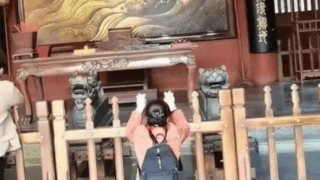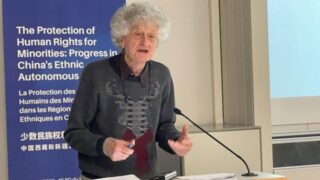How will exactly Beijing authorities try to enforce art. 120 of the new Sports Law? Perhaps international sport authorities will do the job for the CCP, and forbid the protests themselves.
by Massimo Introvigne


Last month, China amended for the third time its national Sports Law of 1995, which had already been amended in 2009 and 2016. It is a mammoth law of 122 articles, which in fact functions as a sport code. The changes introduced in the new text, which will come into force on January 1, 2023, correspond to Xi Jinping’s emphasis on “moderation.” While Olympic athletes maintain certain privileges, the text tries to give the impression that the focus is switching to promoting the physical fitness of the average Chinese citizen. CCP organizations are requested to make sure that their members exercise daily—which has led to online jokes (promptly removed as usual) asking whether the rule also applies to President Xi Jinping, whose roundish silhouette has been famously compared to Winnie-the-Pooh.
There are also draconian provisions against doping, probably meant to appease international sport federations that have suspected Chinese athletes in several disciplines.
All this has been largely ignored by most Western media, which have discussed one single newly introduced provision of the Sports Law, article 120. According to this article, “If any country, region or organization damages the sovereignty, security, development, interests, and dignity of the People’s Republic of China in international sports, the People’s Republic of China may take corresponding measures according to the actual situation.”
Several media have announced that China will now “retaliate” when somebody welcomes a Chinese team abroad by waving signs protesting human rights abuses or flags of Tibet and what the Uyghurs call East Turkestan. This is an interesting concept but how exactly China will “retaliate” is not explained.
The Sports Law of the People’s Republic of China is a law. It is not a political program or statement. Normally, article 120 as all the other articles of the law should be capable of being enforced. What part of what happens in some sport events where Chinese athletes compete abroad displeases the CCP is easy to understand. How the CCP can prevent foreign citizens from exerting their rights to protest in democratic countries is less clear. What are the “measures” threatened in article 120?
China can of course withdraw from certain international competitions or boycott them, but this will probably please rather than punish the protesters, as they would have obtained the important aim of effectively excluding China from parts of international sports. It can also exclude teams of the countries where demonstrations have taken place from visiting China but this would presumably lead to sanctions by the international federations.
One hypothesis is that the Chinese embassies and consulates would send personnel or “students” who would try to stop the protests. There have already been complaints by anti-CCP protesters abroad that they have been physically hit by “students” supporting the Beijing regime at sport events.
Perhaps article 120 is deliberately vague, and the threat is left hanging hoping that national authorities who do not want trouble (or Beijing’s commercial retaliations) and international sport federations that have a tradition of appeasing China would do Beijing’s job themselves. In Australia, at the basketball World Cup qualifiers, China plaid earlier this month first Australia and then Taiwan.


Taiwanese flags were banned and confiscated, while Chinese flags were allowed. Drew Pavlou, an Australian human rights activist, tweeted that he was punched and dragged out of the stadium by security in the game Australia vs. China when he tried to display a sign “Stop the Uyghur Genocide.”
Sometimes, it is enough for China to bark. It does not even need to bite. Perhaps this is the real meaning of article 120.









